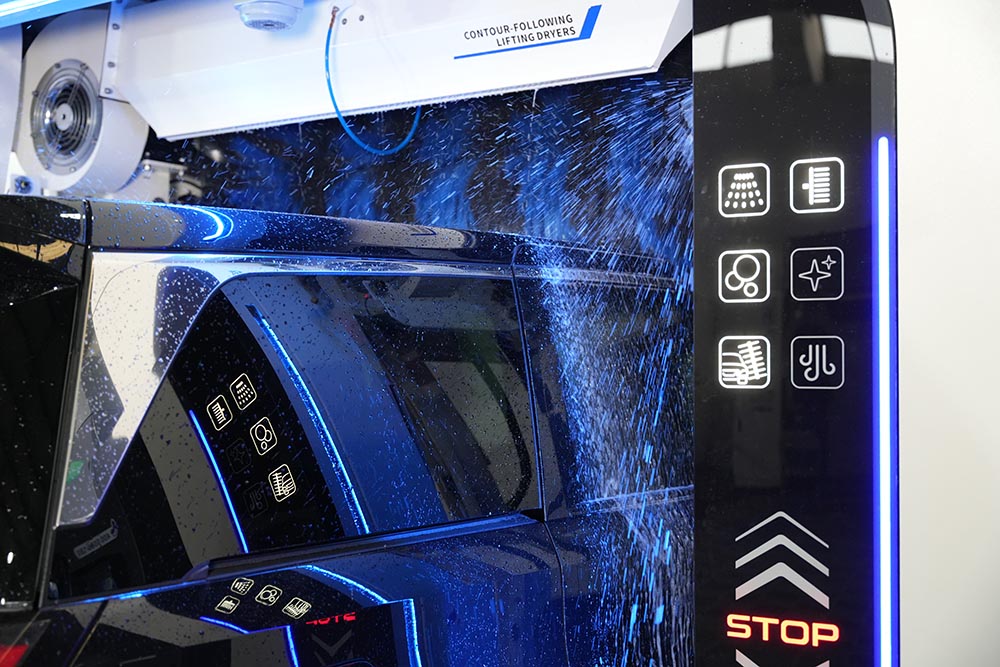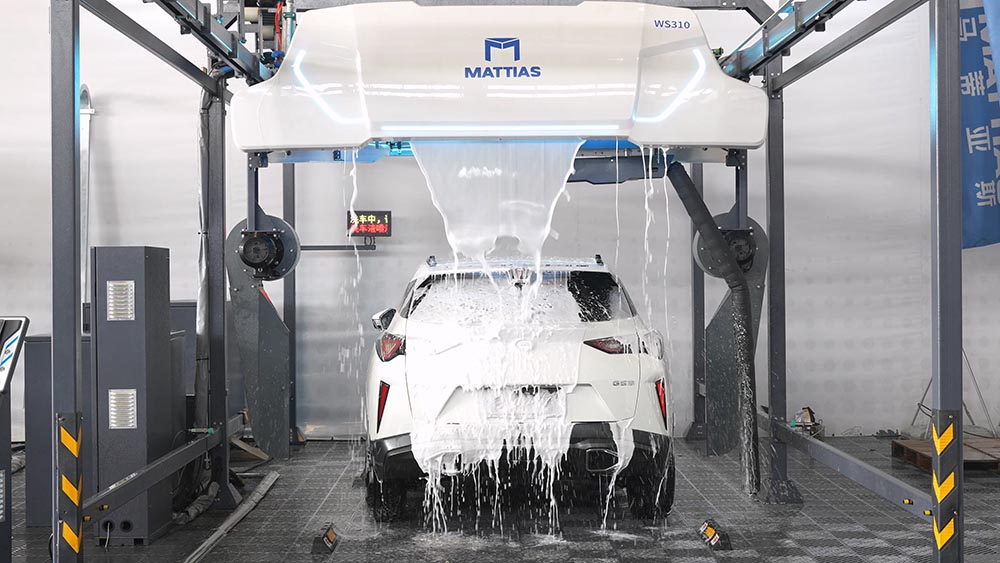Running a professional car detailing business means every decision impacts your efficiency, customer satisfaction, and bottom line. One of the most critical investments you’ll make is choosing the right automatic car wash machine—a tool that can either elevate your operations or become a costly burden.
This guide cuts through the noise to help you select equipment that aligns with your business goals, addresses common pain points, and delivers long-term value. Let’s dive into the key factors to consider.
In the competitive world of professional car detailing, efficiency and quality are non-negotiable. Your clients expect pristine results without compromising their vehicle’s finish—and your reputation depends on delivering it. An automatic car wash machine isn’t just a tool; it’s the backbone of your operation. But with countless options on the market, how do you pick the right one?

Let’s cut through the noise and focus on what truly matters.
1. Understand Your Business Needs
Before diving into specs, ask: What does your detailing business require?
- Volume: Do you handle 10 cars a day or 100? High-traffic operations need heavy-duty systems with rapid cycle times.
- Vehicle Types: Are you servicing compact cars, SUVs, or luxury vehicles? Ensure the machine’s dimensions and brush/touchless technology suit your clients’ fleets.
- Space Constraints: Measure your facility. Tunnel systems demand more space, while in-bay units fit compact setups.
| Touch-free carwashes | Soft to the touch | |
| Pros | Vehicles are not physically touched by anything other than cleaning agents and water, reducing the risk of any part of the vehicle being damaged during the cleaning process. | Soft cloth makes physical contact with the vehicle, often providing a more thorough elimination of dirt and debris. |
| Pinpoint technology means minimal water waste and fewer negative environmental impacts during the cleaning process. | Crevices and other hard-to-reach spots that are often overlooked and missed by touch-free washes are more likely to be reached. | |
| Haziness that can oftentimes be left behind by dust and pollen is more likely to be fully eradicated by a soft-touch wash. | ||
| Cons | Tougher dirt, grease and other organic and inorganic contaminants may not be thoroughly removed. | Cloth strips can often be applied too forcefully, resulting in damage to a vehicle’s mirrors, molding, antenna or other loose parts. |
| Cracks, crevices and other hard-to-reach areas may not be reached adequately. | If a vehicle is not properly emulsified before the cloth strips make contact with the paint, scratches may result from dirt and debris being ground into the vehicle’s surface. | |
| Computerized systems must be maintained in order to keep equipment running efficiently as well as accurately. | Soft-touch washes require diligent maintenance in order to keep cloth strips performing at an effective level. Cloth that is not maintained properly will not provide a thorough cleaning and can even damage a vehicle’s surface. | |
| Use of harsher chemicals to enhance cleaning may also lead to damages to some paint finishes. |
Pro Tip: A touchless system might appeal to luxury car owners wary of scratches, while soft-touch brushes offer deeper cleaning for rugged vehicles.

2. Evaluate Technology & Performance
Not all automatic car wash machines are created equal. Prioritize:
- Cleaning Effectiveness: Look for adjustable pressure settings, precision nozzles, and advanced drying systems to eliminate water spots.
- Chemical Compatibility: Does the machine support pH-neutral soaps or ceramic-coating-friendly products? Avoid systems that force you to compromise on detailing quality.
- Water Efficiency: Modern systems recycle up to 80% of water, critical for eco-conscious clients and regions with water restrictions.
Red Flag: Outdated control panels or lack of IoT integration. Smart systems offer real-time diagnostics, reducing downtime.
3. Factor in Long-Term Costs
The sticker price is just the start. Calculate:
- Maintenance: How often do belts, brushes, or sensors need replacement? Opt for machines with modular designs for easy repairs.
- Energy Use: LED lighting, variable-speed motors, and energy-efficient dryers slash utility bills.
- Warranty & Support: A 5-year parts warranty beats a 1-year offer. Ensure the supplier provides on-site training and 24/7 technical support.
Case Study: A Florida detailer cut monthly costs by 30% after switching to a machine with regenerative water recycling and solar-compatible power.
4. Prioritize Safety & Sustainability
Clients and regulators demand greener practices:
- Biodegradable Chemicals: Ensure the machine works seamlessly with eco-friendly detergents.
- Water Reclaim Systems: Meet environmental standards and market your business as planet-friendly.
- Safety Features: Look for emergency stops, obstacle detection, and child-lock controls to protect staff and vehicles.
Stat: 72% of car owners prefer eco-conscious detailers (2023 Automotive Care Survey).

5. Test Before You Invest
Never buy blind. Reputable suppliers should offer:
- Live Demos: Assess noise levels, cleaning consistency, and ease of use.
- Client References: Talk to businesses like yours. Did the machine handle peak demand? How responsive is the support team?
- Lease-to-Own Options: Pilot a system for 6 months before committing.
Ready to Transform Your Detailing Business?
The right automatic car wash machine isn’t just equipment—it’s a competitive edge. At [Your Company Name], we’ve helped 500+ detailing businesses optimize their operations with tailored solutions.
Act Now & Get:
✅ Free ROI Analysis for Your Shop
✅ Exclusive Discounts on Installation
✅ 24/7 Priority Support
Contact our car wash engineers today for a no-pressure consultation and custom quote. Let’s build a system that grows with you, not against you.



